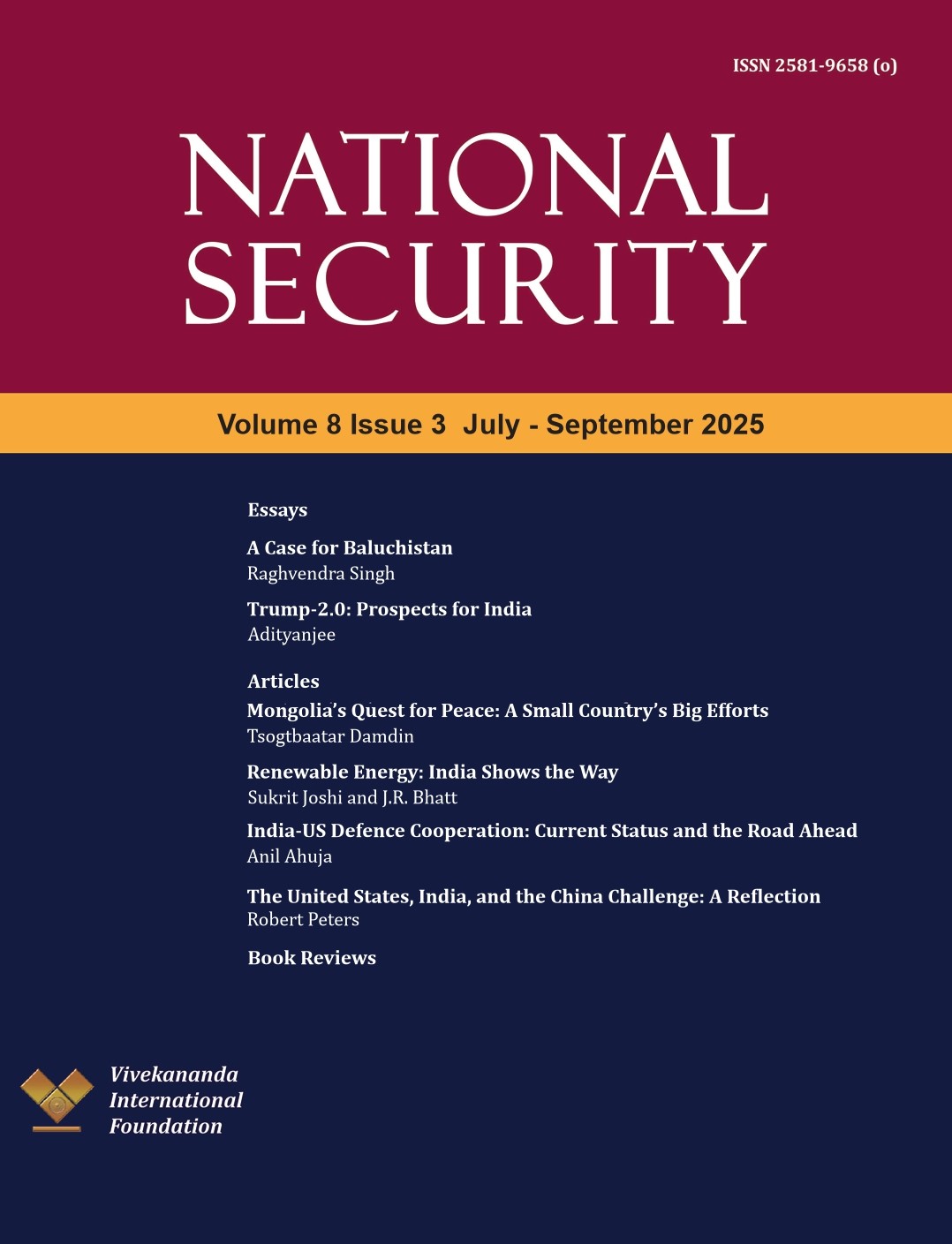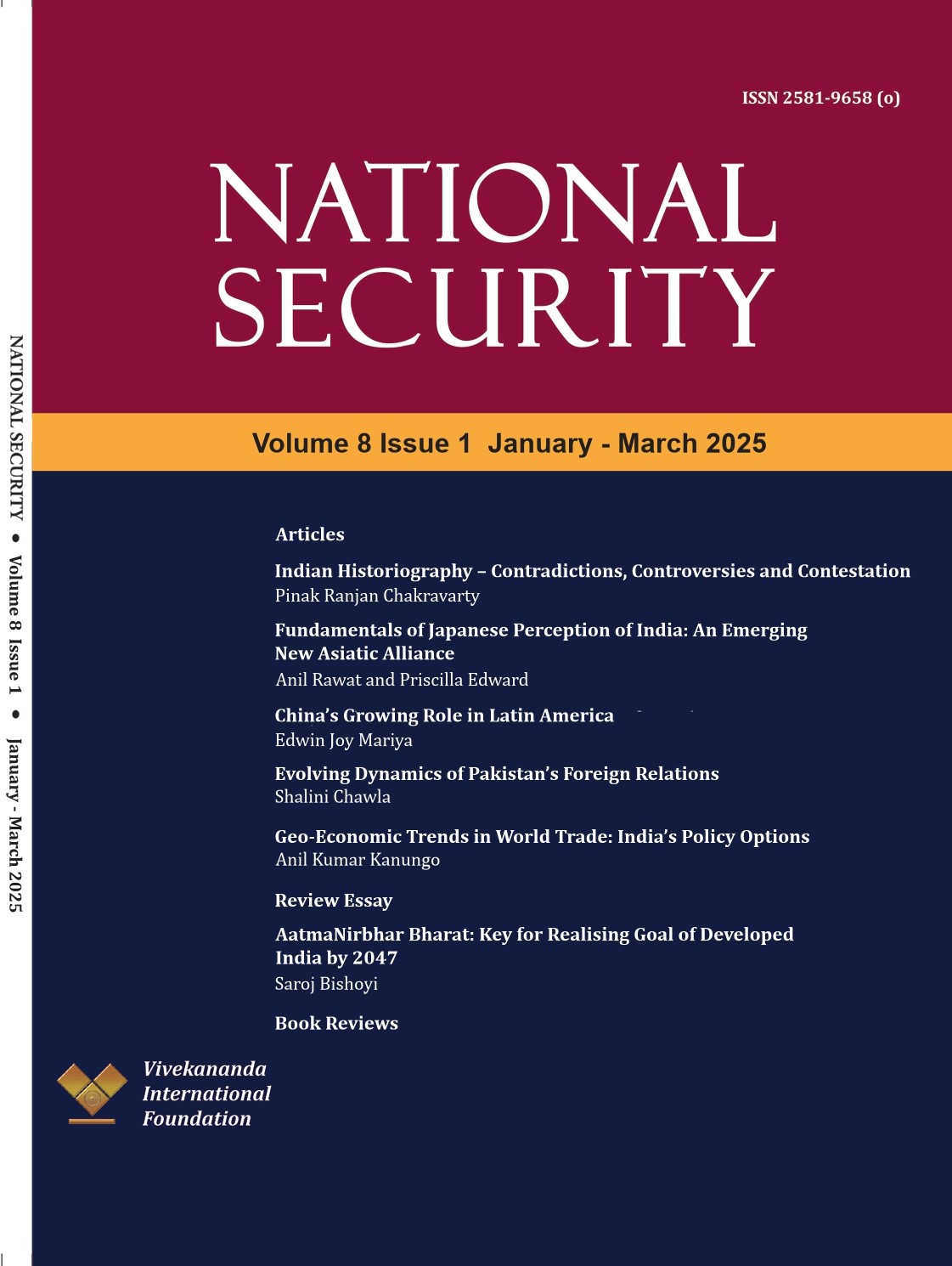National Security
Published in Association with Vivekananda International Foundation
Current Volume: 8 (2025 )
e-ISSN: 2581-9658
Periodicity: Quarterly
Month(s) of Publication: Mar, Jun, Sep & Dec
Subject: Political Science & International Affairs
DOI: 10.32381/NS
Online access is free for the Research Faculty of VIF
Article
Hijacked Revolution
By : Saudiptendu Ray
Page No: 316-341
Abstract
The events in Bangladesh between June and August 2024 exposed vulnerabilities in its democratic institutions. A student-led protest against an outdated quota system turned into a violent movement once it was hijacked by radical Islamists who were backed by external forces. This resulted in the ouster of Sheikh Hasina and further destabilised Bangladesh. The crisis revealed the strategic interventionism of the United States, employing economic power, diplomatic pressure, media manipulation, and covert operations to influence regime change. This interference, driven by broader geopolitical priorities like countering China and monitoring India, prioritised the United States interests over Bangladesh’s sovereignty. The rise of Muhammad Yunus as Chief Adviser, supported by the United States elites, underscored external manipulation. Tragically, communal violence, particularly against Hindus, who are a minority in Bangladesh, worsened with time due to inadequate global response. The crisis underscores the dangerous interplay of domestic instability and foreign intervention.
Author
Saudiptendu Ray is a Research Associate at the Vivekananda International Foundation (VIF). His research focuses on India’s culture and civilisation. He has a master’s degree in Modern Indian History from the Faculty of Social Sciences at the University of Delhi and a master’s in Museology from the National Museum Institute, New Delhi.
DOI: http://doi.org/10.32381/NS.2024.07.04.6









